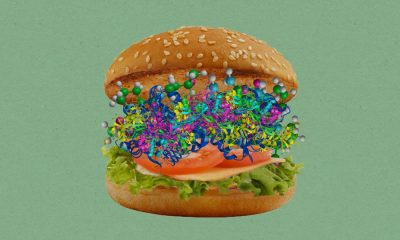The Met Gala is happening this year after taking a step back last year due to the COVID-19 pandemic. Since the global health crisis is still ongoing, the event will be very different from previous years. Apart from the health protocols that will be implemented, the fundraiser is going vegan.
The Met Gala and its vegan-only menu
The star-studded gathering, scheduled for Sept. 13, will see attendees masking up and providing proof of their full vaccination, a spokesperson for the organizers disclosed to People Tuesday. The spokesperson also said that their guidelines are subject to change should New York CIty’s local government implement new protocols ahead of the charity event.
Interestingly, the Met Ball organizers, headed by Vogue editor-in-chief Anna Wintour, have also decided to switch things up this year by serving guests with vegan-only menu. The event has tapped 10 notable New York-based chefs to realize a collective effort of providing the A-list guests with plant-based meals, according to WWD.
The organizers’ decision to go vegan has quickly gotten the approval of PETA President Ingrid Newkirk who issued a statement saying that aside from the meat-less dishes, they are also looking forward to seeing the stars attending the event embracing a more “Earth- and animal-friendly fashion” moving forward.
Though the Met Ball organizers did not stipulate their reasons for ditching meat and going plant-based for the 2021 iteration of the fundraising event, it is widely believed that Michelin-starred restaurant Eleven Madison Park’s decision to switch to an all-vegan menu in May had inspired them to go this route, VegOut Magazine said.
Chef Daniel Humm, the owner of the famous food establishment, explained in a note that their decision to change their menu in favor of plant-based food was brought about by their realization that “the current food system is simply not sustainable, in so many ways.”
However, sustainability is just one facet of veganism. Environmental, ethical and health factors also come into play when examining why practitioners of the vegan diet favor this eating program over a variety of other diets that are gaining traction in the recent years.
What makes the vegan diet healthy
The vegan diet is strictly plant-based. All vegetables and fruits can be eaten when following this program, so there is no denying that vegans benefit from consuming the vitamin- and mineral-rich foods allowed in this nutrition plan.
Contrary to the belief that veganism is not that healthy since its followers do not have a good source of protein that meats are able to provide, lifestyle magazine Cooking Light said vegans are unlikely to be deficient in protein when they know how to plan their meals right.
Animals are not the only sources of protein. A number of food items allowed in the vegan diet can also provide the body’s protein needs. Soy products, seitan, chickpeas and lentils are also packed with protein, according to Rush University.
Medical News Today listed the different health benefits the vegan diet offers and among them is its ability to lower the risk of cancer. Plants are good sources of vitamins and phytochemicals that protect the body from certain cancers.
Additionally, the vegan diet is high in fiber and lower in cholesterol. A 2019 study that compared the health of thousands of vegans, vegetarians, meat-eaters and pescatarians found that those who practiced the plant-based diets had a lower risk of heart disease.
Does going vegan guarantee good health?
For Rush University Medical Center cardiologist Jeffrey Soble, MD, going vegan does not automatically guarantee good health. Having a family history of heart disease, Soble himself started practicing veganism about two years ago.
Although the plant-based diet does promise and come with a number of health benefits, Soble does not go on convincing every patient of his to switch to the nutrition program. According to him, getting healthy through diet should revolve around knowing what’s good for our body and knowing which foods to avoid.
“You can be overweight and be a vegan; you can be malnourished and be a vegan. Whatever your diet choice, you have to know which foods to avoid and which foods to seek out,” Soble said.
“Refined grains, sweets and junk food are troublemakers for everyone, not just vegans. And vegans and non-vegans alike can fall into the habit of making these items the mainstays of their diet,” he added.
The 2019 study found that while vegans have a lower risk of having heart disease, they have a higher risk of stroke, mostly because the nutrition plan is devoid of vitamin B12, an essential compound found in meat, fish, eggs and dairy, but not in vegetables and fruits.
For this reason, Janet Cade, of the Nutritional Epidemiology Group, School of Food Science and Nutrition, is urging vegans and those who are starting to practice this eating program to take B12 supplements.
















